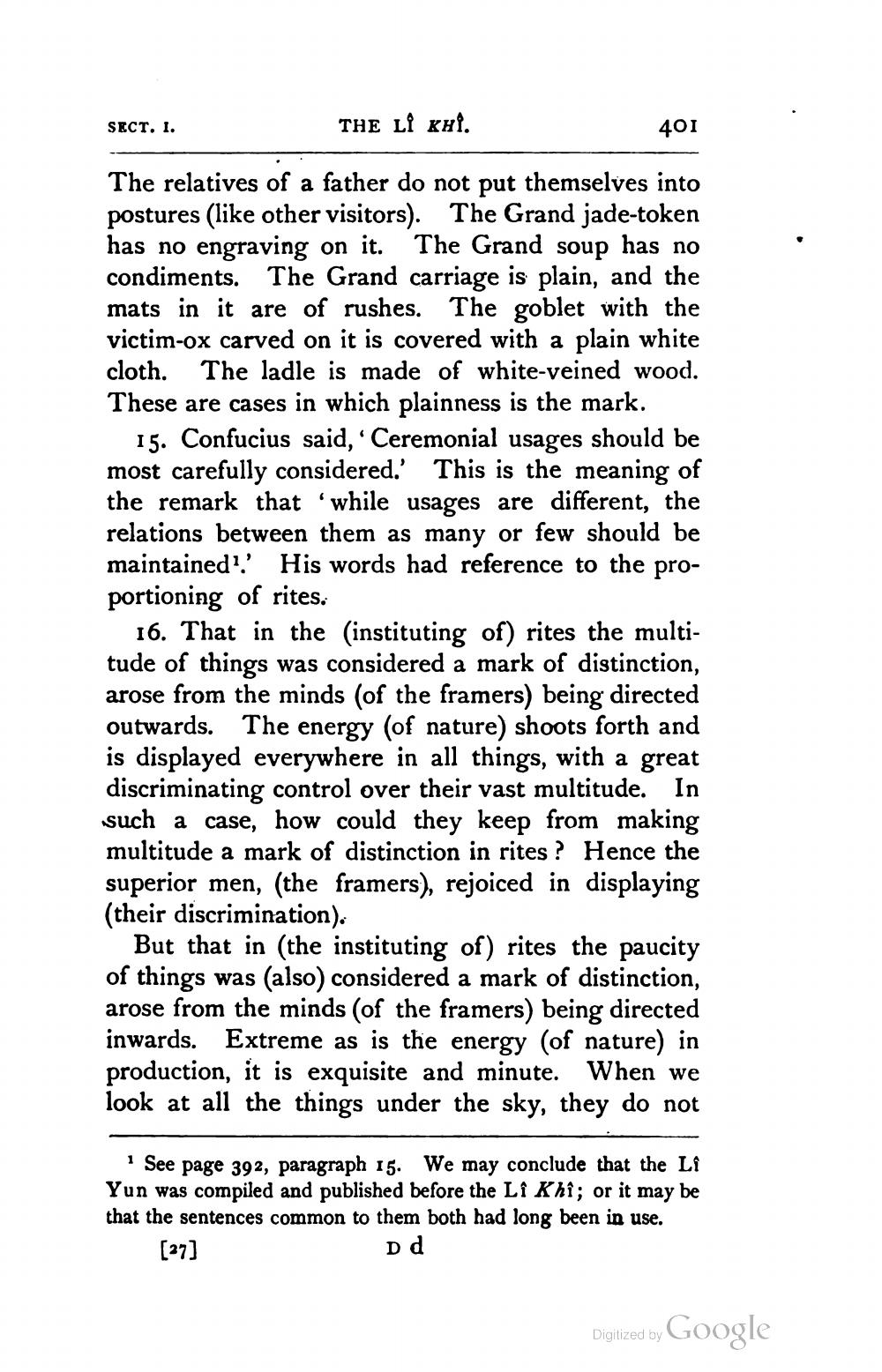________________
SECT. I.
THE LÝ KHÍ.
401
The relatives of a father do not put themselves into postures (like other visitors). The Grand jade-token has no engraving on it. The Grand soup has no condiments. The Grand carriage is plain, and the mats in it are of rushes. The goblet with the victim-ox carved on it is covered with a plain white cloth. The ladle is made of white-veined wood. These are cases in which plainness is the mark.
15. Confucius said, ' Ceremonial usages should be most carefully considered. This is the meaning of the remark that 'while usages are different, the relations between them as many or few should be maintained?' His words had reference to the proportioning of rites.
16. That in the instituting of) rites the multitude of things was considered a mark of distinction, arose from the minds (of the framers) being directed outwards. The energy (of nature) shoots forth and is displayed everywhere in all things, with a great discriminating control over their vast multitude. In such a case, how could they keep from making multitude a mark of distinction in rites? Hence the superior men, (the framers), rejoiced in displaying (their discrimination).
But that in (the instituting of) rites the paucity of things was (also) considered a mark of distinction, arose from the minds (of the framers) being directed inwards. Extreme as is the energy (of nature) in production, it is exquisite and minute. When we look at all the things under the sky, they do not
See page 392, paragraph 15. We may conclude that the Li Yun was compiled and published before the Li Khi; or it may be that the sentences common to them both had long been in use. [27]
Dd
Digitized by Google




